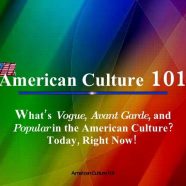
We live in a dynamic society where our cultural values and moods are in a constant state of flux, changing radically every decade or so. A historical perspective of these cultural swings shows the importance of recognizing emerging opportunities (and threats) for positioning a brand, even today as we approach the Presidential election
World War I led to the roaring 1920’s with carefree hedonism, followed by the humbling depression in the 1930’s and then World War II. The Eisenhower period in the 1950’s was characterized by an expansion of the suburbs and highways, domestication of family values, and steady growth of household income.
This era of stability abruptly ended with the tumultuous reaction to the Viet Nam war in the mid 1960’s into the 1970’s. Chaos became the norm. Society was deeply polarized, mainly young versus old, with several transformative events contributing: the arrival of hard rock and hard drugs, the pill and free love, the long hair and no-bra fashion, assassinations of JFK, RFK and MLK, Woodstock, and constant protests against the Viet Nam war.
Example: Opportunistic VW Bug
All this disruption reflected a huge change in the values of American society where the counter culture youth rebelled against the traditional lifestyles and tastes of their parents. For example, the gas guzzling, ostentatious cars from Detroit became status symbols of excessive waste and egotism in the eyes of young, individualistic consumers. This transformation especially created a new opportunity for the successful re-positioning of the brand image of the VW Bug. Led by a brilliant advertising campaign, this unique, “ugly” VW Bug became a lifestyle phenomenon, viewed as a fun yet practical car and a compelling anti-establishment statement by the young.
The late 1970’s and 1980’s evolved into a period of self-indulgence, a culture of narcissism and self-indulgence, especially during the Reagan years highlighting eternal optimism. Tom Wolfe called this the “Me Decade”. In particular, there was an unabashed fascination with displays of extravagant wealth and the lifestyles of the rich and famous. This was when Donald Trump emerged as a celebrity as he epitomized this era of egotistical, unchained self, also when his glitzy Trump Tower opened (1983).
After the Cold War ended, the 1990’s were relatively uneventful and Trump’s brand was not as noticeable. In the 2000’s the war on terrorism preoccupied our priorities, with 9/11 and then the wars in Iraq and Afghanistan. It ended with the debt driven Great Recession in 2007-09 and large banks became the culprit. Disgust with established power was high. Social trust dropped. In response Obama promised hope and economic growth was restored, at least until Covid hit us in 2018.
Current Culture of Negativity
The overall mood was changing dramatically however. Society became even more divided, with growing contempt and distrust among rural, less educated Americans, especially against the urban “elite”, big business, and many institutions (e.g. the Justice Department, FBI, traditional media, etc.). Trump in 2016 was viewed as a refreshing anti-establishment outlier and a successful businessman who would fight the ruling class, unite Americans and resurrect the dignity and fortunes of MAGA people.
Instead, Trump’s narcissism, nasty rhetoric, conspiracy theories and constant disinformation have further polarized society and spread an unprecedented culture of hatred. His 2000 election denial and the January 6 insurrection are clear evidence of the consequences. While Biden promised decency and normalcy, Trump has departed from traditional Republican values (e.g. managing deficits, support of allies, family inclusion, good manners, etc.) and created a scary atmosphere of divisiveness and revengeful violence:
- In 2016, hate crimes jumped 226% in counties that hosted Trump rallies, and overall reached a 16 year high during his time in office.
- A CBS poll in September showed that 83% of Americans feel his rhetoric has become more negative.
- And if Trump wins the election, 58% predicted more violence versus 42% if Harris wins
Meanwhile there are emerging signs of voter exhaustion and weariness of this new culture of hatred, harsh personal attacks and bitterness. Many traditional Republicans like Liz and Dick Cheney have expressed their resentment of the extreme conservatism, anti-democracy and vengeful tactics of Trump. More and more voters say they want this public turmoil and divisive vitriol to end; they simply want to be re-united. These emerging emotional cultural values may even provide a new wind behind Harris’ positive promises of a joyful future and economic opportunity. Smartly she has positioned her brand as an agent of cultural change.


